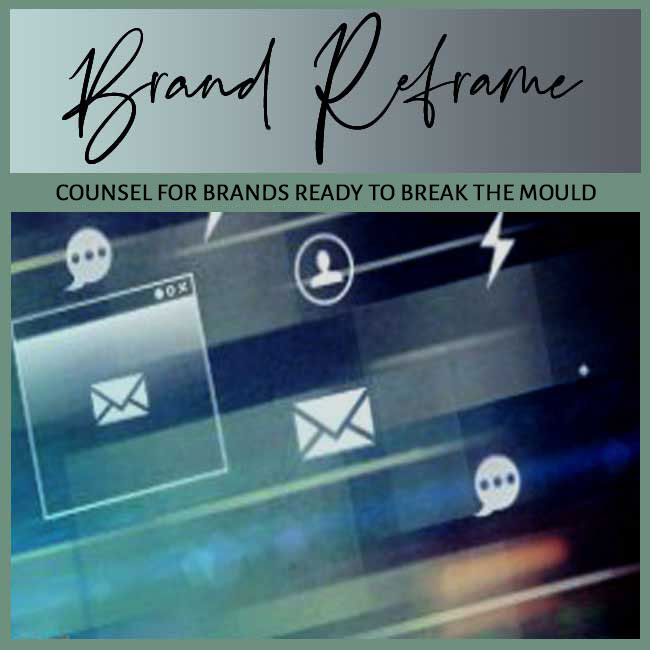
FOCUS: BRAND SCALING RISKS | AUDIENCE: INVESTORS IN SLUGGISH BRANDS
BY: SHOBHA PONNAPPA | BRAND BREAKTHROUGH STRATEGIST | 45 YEARS | 125+ CLIENTS
I helped a home-medicare equipment startup see that fixing its logistics needed to be supported by rebuilding trust.
The startup offered essential health equipment for elderly patients at home, ranging from walkers to blood pressure monitors. Its growth strategy relied on direct-to-consumer distribution, promising speed, safety, and convenience. Yet when orders scaled, deliveries faltered … late arrivals, occasional damage, and missing instructions. Customers felt the brand had broken its promise.
The company worked urgently on back-end logistics to improve fulfilment. But from the customer’s perspective, silence and poor communication created anxiety. Families caring for vulnerable loved ones were left with unanswered questions, leading to declining repeat orders and a visible drop in investor confidence.
I realised the real gap wasn’t only in delivery … it was in perception management. Even when the brand was working hard behind the scenes, customers felt abandoned because they received no meaningful updates. The problem wasn’t only a package arriving late, it was uncertainty about whether it would arrive at all.
In healthcare, trust is non-negotiable. What people buy is reassurance as much as a product. A damaged walker or a delayed oxygen concentrator is more than a glitch … it represents fragility in the brand’s promise of care.
My breakthrough for the brand came from reframing communications about logistics into a content strategy of care. Instead of hiding behind generic emails, the brand needed to make delivery, transparency, and empathy part of its visible identity. Every touchpoint … from tracking updates to packaging inserts … had to signal that the brand was attentive and human.
The big idea was that the brand didn’t just ship equipment … it shipped trust. By showing accountability, anticipating concerns, and speaking with clarity, the startup could turn an operational weakness into a loyalty-building strength.
I created a digital-first communication framework that ran in parallel with back-end fixes. This involved reassuring transparency: explaining expected timelines, sending proactive updates, and making apologies sound human rather than automated. Where logistics hiccups couldn’t be avoided, the messaging softened the frustration by showing care.
The packaging experience also became part of communication. Each box carried QR codes linking to video guides and real-time support channels. Customers no longer felt abandoned at the doorstep … they felt accompanied, even in delay.
Here are 10 strategic ideas developed (and several executed) to support the new brand direction:
Proactive Delivery Updates: SMS and email alerts written in empathetic tone, explaining delays before customers had to ask.
Behind-the-Scenes Stories: Short videos of fulfilment teams preparing shipments, showing the care invested in each order.
Caregiver Guides: Downloadable PDFs on setting up equipment safely, giving immediate value beyond the delivery.
Unboxing with Assurance: Branded inserts in each package with helpline details and QR codes to video demos.
Trust Badges on Digital Channels: Icons showing fulfilment accuracy rates and response times, reinforcing reliability.
Interactive FAQs: Dynamic web content addressing delivery concerns and equipment use in everyday language.
Weekly Customer Spotlight: Featuring stories of families using the equipment successfully, reinforcing outcomes not just objects.
Crisis Communication Templates: Pre-prepared messages that acknowledged and guided customers through unexpected disruptions.
Transparent Metrics Posts: Sharing delivery success improvements openly on social channels to regain investor and customer faith.
Empathy-Driven Chatbot: A support tool trained to answer common questions with tone-sensitive responses, available 24/7.
Customer trust scores rose by 52% in follow-up surveys.
Repeat orders increased by 41% despite lingering logistics challenges.
Negative reviews mentioning delivery dropped by 60%.
Investor sentiment improved, with one round of follow-on funding commitment coming through on the strength of regained customer loyalty.
CONFIDENTIALITY CAVEAT: This case study represents a confidential engagement. For privacy, specific brand identifiers, campaign names, and project phases have been withheld. It has been shared with permission while preserving client discretion.
If you’re brand owner or manager seeking stronger brand performance, this Case Study Post I wrote could interest you: “When A Futuristic Consumer Electronics Brand Spoke in Loops.“
And if you’re a solo expert looking to sharpen traction, this Case Study Post I worked on may resonate: “How an SEO Brand With Bright Results Hid Behind Dim Stories.“

"One BIG IDEA can turn brand stagnation into unstoppable movement. Spots are limited each week ... book your breakthrough session now."
Shobha Ponnappa
More Breakthrough Ideas … Case Studies & FAQs … from the Brand Scaling Risks Category
Case Studies
FAQ Insights
Smart insights, real-world frameworks, and idea-driven clarity – designed to help brands move.
Get my fortnightly Brand Reframe newsletter. Smart insights, distilled thinking, and focused momentum to help your brand lead.

Get my free AI strategy guide. Smart prompts, sharper briefs, and practical ways to make AI support your brand momentum.

Just fill in the form to join. Get my newsletter and the guide shown alongside, all with several game-changing tips.